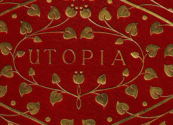Discussion Questions for The Concept of Enlightenment
by Aramis Miranda-Reyes
- It is clear that at its core, The Concept of Enlightenment (1947) by Horkheimer and Adorno is a complete and utter rejection of the course and the aims of modern society as heralded by Francis Bacon in The Novum Organum. In their view, the aims of the Enlightenment have given birth to a status quo which is rooted in an ideology of alienation and domination and is thus “radiant with triumphant calamity” (1). Given their assertions and extreme characterizations, is it possible to find today some value in the Enlightenment as an intellectual or as a socio-political movement? Is it a concept at all worth reclaiming? If so, what positive aspects can we recognize? What is their dynamic in 21st century society?
- Enlightenment as we understand it today refers to an intellectual movement in which various figures of the 17th and 18th centuries sought to topple the existing hegemony of medieval law and church doctrine in favor of secular authority and new approaches to living based on scientific discoveries of the time. One of those figures was Francis Bacon whose Novum Organum Horkheimer and Adorno posit as the herald text of Enlightenment ideology. As a movement, it is understood that Enlightenment is in no way uniform or unified – or so modern social theory tells us. No one figure in the movement ever defines others completely. And yet The Concept of Enlightenment provides little or no mention of any additional Enlightenment writers, thinkers or philosophers to support their assertions regarding said movement. Where is Locke? Rousseau? Adam Smith? Doesn’t this lack of representation send an erroneous message that society has moved exactly in the direction Francis Bacon laid out in the Novum Organum, as if it were a script? Is such a conception of human culture realistic? Does this not stain Horkheimer and Adorno’s logos with the very dynamic they are attempting to deconstruct? e.g. “Whatever might be different is made the same. That is the verdict which critically sets the boundaries to possible experience” (8).
- Horkheimer and Adorno postulate that while the Enlightenment’s main goal was to eliminate the burden of ancient mythologies’ from modern societies, Enlightenment itself was a replacement mythology which operated in just as totalitarian a manner. They also state that ancient mythologies had inherent limitations which the Enlightenment “mythology” seemed to lack: “The magician [man] imitates demons; to frighten or placate them he makes intimidating or appeasing gestures. Although his task was impersonation he did not claim to be made in the image of the invisible power, as does civilized man, whose modest hunting ground then shrinks to the unified cosmos, in which nothing exists but prey” (6). In essence, primitive man in the role of magician imitated the powerful entities of the forest to protect himself from evil but never actually believed himself to have their power or authority over the universe so as to treat it as his own playground. What correlation, if any, can be made between this critique of Enlightenment ontological positioning and Utopian discourse? Are all creators of Utopias ultimately complicit in this dynamic of power hungry predators bent on world domination? Or is there perhaps a different way of considering this ontology?
- One of the more interesting points of critique Horkheimer and Adorno make relates directly to the utopian writer as creator of imagined societies. They state – “For positivism, which has assumed the judicial office of enlightened reason, to speculate about intelligible worlds is no longer merely forbidden but senseless prattle…For the scientific temper, any deviation of thought from the business of manipulating the actual, any stepping outside the jurisdiction of existence, is no less senseless and self-destructive than it would be for the magician to step outside the magic circle drawn for his incantation; and in both cases violation of the taboo carries a heavy price for the offender” (19). If systematic thinking has indeed limited artistic and creative possibilities to the degree they claim, what evidence of such constraints, in terms of affect or effect, have we, as students of Enlightenment Utopias, found in our readings?
- In Foundations of the Frankfurt School (Cambridge University Press, 2011), Professor John Abromeit states that Horkheimer, and later Adorno, “insist that nature and history are in and of themselves meaningless, and can be given meaning only through conscious human interaction. Any attempt to claim otherwise would be tantamount to post facto justification of past and present suffering. Although [neither] mentions Voltaire explicitly in this context, his merciless parody in Candide of Leibniz’s praise of the status quo as the best of all possible worlds, is a fitting example of [their] argument.” (Abromeit, 230). In view of this philosophy, which we clearly see brought to its logical conclusion in The Concept of Enlightenment, and the evident connection to Voltaire, I think it is worth engaging with the ongoing interpretation of the famous final line of Candide – “…we must cultivate our garden“. What can we speculate given this context?


